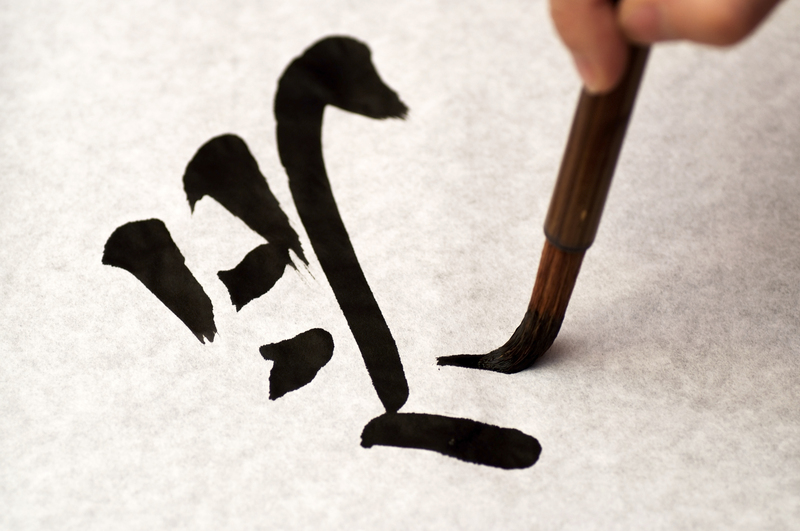Stress Less by Organizing and De-cluttering: Transform Your Life
Do you often feel overwhelmed at home or at work? Do heaps of paperwork, messy counters, and a seemingly endless to-do list leave you feeling anxious? You're not alone. Many people experience stress as a direct result of clutter and disorganization. The good news is, making a habit of organizing and de-cluttering your living spaces can help you manage stress, boost productivity, and improve your overall well-being. This comprehensive guide will show you exactly how you can stress less by organizing and de-cluttering, with practical tips, inspiring insights, and actionable strategies that really work.

Why Does Clutter Cause Stress?
Before jumping into solutions, it's important to understand the link between clutter and anxiety. Numerous studies have shown that disorganized spaces can negatively impact mental health, triggering feelings of overwhelm, guilt, and distraction. Here's why:
- Cognitive Overload: Visual clutter overwhelms your mind, making it difficult to focus.
- Constant Reminders: Messy spaces constantly remind you of work left undone.
- Reduced Productivity: It's harder to find what you need, resulting in lost time and frustration.
- Emotional Drain: Cluttered homes can cause feelings of embarrassment and stress, especially when welcoming visitors.
By de-cluttering and organizing your environment, you can create a sense of calm, reclaim valuable time, and boost your mood.
The Benefits of Organizing and De-cluttering
Setting time aside to clean and re-organize isn't just about aesthetics. The positive effects extend to nearly every aspect of your life.
- Mental Clarity: A tidy environment fosters clear thinking and higher creativity.
- Reduced Anxiety: Taking control of your surroundings reduces stress levels.
- Increased Efficiency: Spending less time searching for items means more time for fun and relaxation.
- Better Health: Less clutter means less dust and fewer allergens.
- Improved Relationships: Sharing an organized space minimizes household tension.
In short, stress less by organizing and de-cluttering, and you'll unlock a new sense of order and tranquility in your daily life.
How to Start De-cluttering: Step-By-Step Guide
1. Set Realistic Goals
Don't overwhelm yourself by trying to tackle your whole house in a day. Start small and focus on one room or category at a time. Decide in advance what you want to achieve - whether it's clearing your desk, organizing your pantry, or cleaning out your closet.
- Write a list of spaces you want to address
- Mark easy wins - like a drawer, shelf, or box
- Schedule de-cluttering sessions of 20-30 minutes to avoid burnout
2. Sort and Simplify
As you work through your chosen area, divide items into four categories:
- Keep: Items you use regularly or truly love.
- Donate: Things in good condition that could help someone else.
- Recycle: Items that can be responsibly recycled.
- Trash: Broken or unusable items.
*Tip: For items you're unsure about, place them in a "maybe" box. Revisit it in a month to see if you've missed anything.*
3. Organize What You Keep
Once you've decided what stays, it's time to create a system of organization that will make future maintenance easier. Here's how:
- Group like items together (e.g., office supplies, cleaning products, pantry goods)
- Use bins, baskets, and labels to keep everything tidy and easy to find
- Take advantage of vertical storage options such as shelves and hooks
- Arrange daily essentials within easy reach
4. Maintain Your Progress
The real secret to stress less by organizing and de-cluttering is consistency. Develop small habits that keep clutter at bay:
- Do a quick 10-minute tidy-up each evening
- Follow a "one in, one out" rule for new purchases
- Regularly review areas prone to mess and clear them as needed
Smart Strategies for Specific Areas
1. The Home Office
A cluttered workspace wreaks havoc on productivity. To reduce work-related stress, try these organizational tips:
- Digitize paperwork to reduce physical files
- Use drawer organizers for office supplies
- Keep your desktop minimal - only essentials within reach
- Schedule a weekly reset to clear outdated documents and trash
2. Kitchen and Pantry
A tidy kitchen saves time and encourages healthier habits. To make mealtime less stressful:
- Group pantry items by category and label shelves
- Store commonly used utensils within arm's reach
- Regularly check expiry dates and donate or discard unused foods
3. Bedrooms and Closets
A calm, ordered bedroom promotes restful sleep. Here's how to create a stress-free sanctuary:
- Switch to seasonal organization so only current clothes are on hand
- Fold or hang items neatly; donate what you no longer wear
- Place a laundry basket in an accessible spot
4. Living Room and Shared Spaces
Reduce daily stress by making communal areas inviting:
- Choose multifunctional furniture with hidden storage
- Keep toys, games, and remotes in designated bins
- Display only meaningful decor to avoid visual clutter
5. Entryway and Mudroom
A neat entrance sets a positive tone for your home. Try these hacks:
- Add wall hooks for coats and bags
- Place a small tray for mail and keys
- Shoe racks keep footwear tidy and trips safe
Mental and Emotional Benefits of De-cluttering
It's not just about neatness. The act of organizing and de-cluttering has profound emotional rewards:
- Sense of Accomplishment: Achieving even small tasks boosts your confidence and happiness.
- Letting Go: Releasing items tied to the past can feel freeing, helping you move forward.
- Greater Presence: With less visual chaos, your mind is calmer and more present in the moment.
Engaging in de-cluttering can be a form of self-care, giving you more space--physically and mentally--to enjoy life.
Common Organizational Challenges and How to Overcome Them
It's normal to hit roadblocks on your organizing journey. Here are some typical challenges and proven solutions to help you continue stressing less by organizing and de-cluttering:
1. Sentimental Attachments
- Limit keepsakes to a designated box or display shelf.
- Take photos of mementos that are difficult to release but no longer serve a purpose.
2. Lack of Time
- Break the process into mini projects completed in 10-15 minute sessions.
- Set a timer to stay focused and avoid procrastination.
3. Overwhelmed by Where to Start
- Start with a single visible area like the coffee table or entryway.
- Enlist help from family or friends for added motivation and support.
Tips for Preventing Clutter in the Future
- Shop Mindfully: Buy only what you need and love. Impulse purchases often become clutter.
- Use Storage Solutions: Invest in organizational tools that suit your space and lifestyle.
- Regularly Donate or Sell: Make it a habit to clear out unused items each season.
- Designate a "Clutter Basket": A dedicated spot for stray items, emptied weekly.
- Reflect on Your Habits: Notice what tends to pile up and address the root cause.
Stress Less by Organizing and De-cluttering: The Psychological Perspective
Research shows that our environments mirror and influence our inner lives. Clutter can become a source of chronic, low-level stress that you may not even realize is impacting your mood, focus, and relationships. Conversely, an organized home fosters a positive mindset, empowering you to handle daily challenges with greater resilience.
Many mental health professionals advocate for regular de-cluttering sessions as a tool for managing anxiety and depression. The process is restorative: as you clear your physical space, you gain the psychological space to reflect, create, and recharge.
Organizing and De-cluttering with Family
Involving your family or housemates turns de-cluttering into a shared responsibility. Here are a few ways to encourage participation and minimize stress:
- Assign age-appropriate tasks to children
- Make organizing a fun competition with rewards
- Communicate openly about household expectations
- Schedule regular "reset" days for communal spaces

Organizing and De-cluttering the Digital Space
Don't let digital clutter add stress to your day. Tidy up your virtual life for a more organized and calm mindset:
- Delete unused apps and files
- Organize folders and create a simple filing system
- Unsubscribe from unnecessary email lists
- Back up important documents and photos regularly
Conclusion: Embrace a Calmer Life by Organizing and De-cluttering
Stress less by organizing and de-cluttering isn't just a catchy phrase--it's a life strategy. By taking charge of your environment, you can dramatically lower daily anxiety, boost happiness, and create spaces that support your goals and dreams. Start small, stay consistent, and celebrate every step along the way.
You have the power to transform not just your home, but your mindset, by embracing the journey of de-cluttering and organizing. Your future, calmer self will thank you!